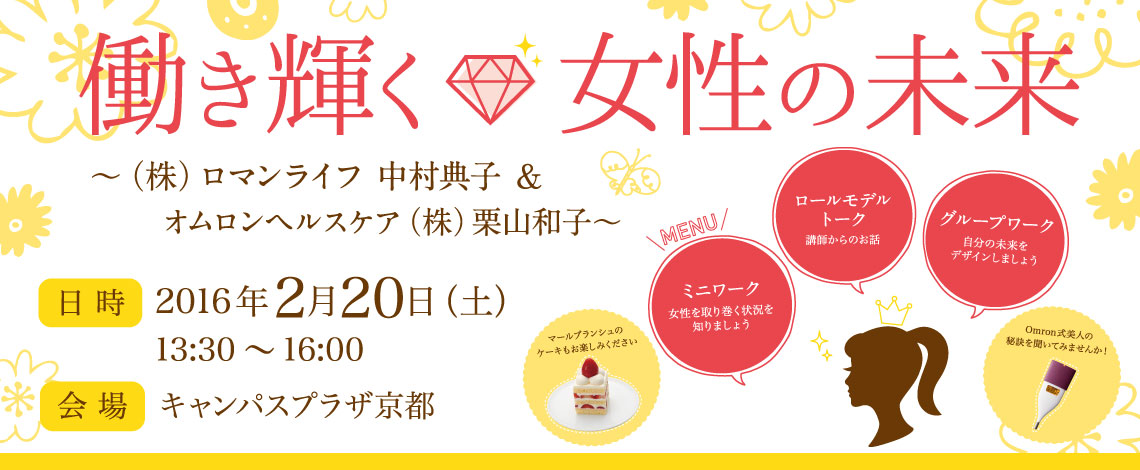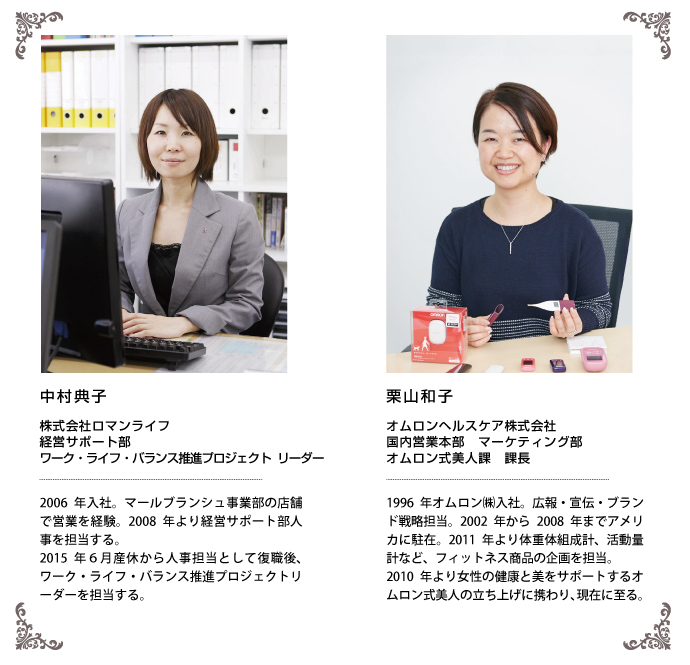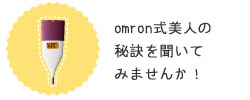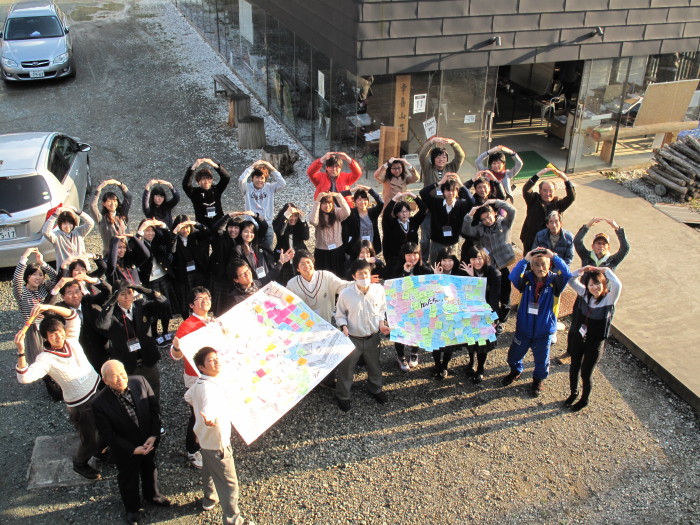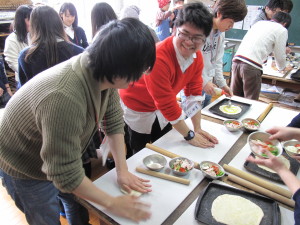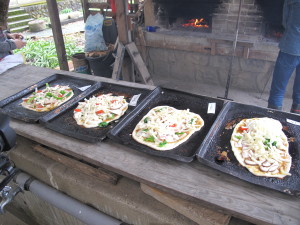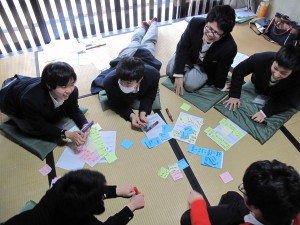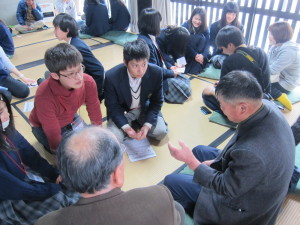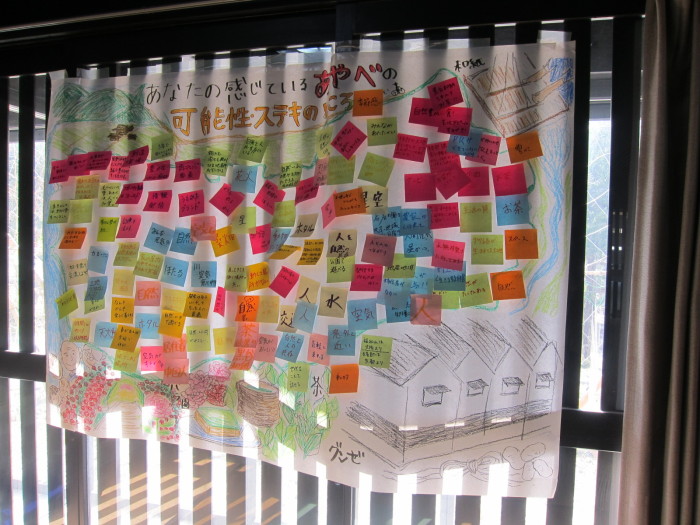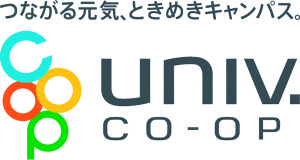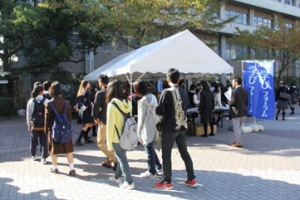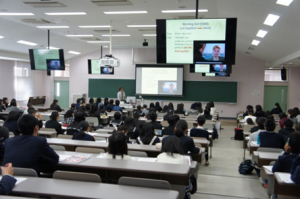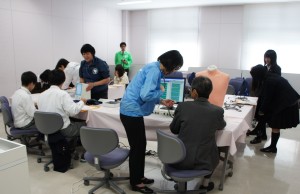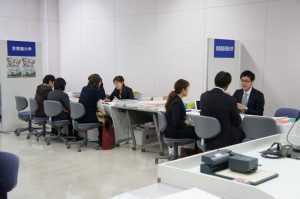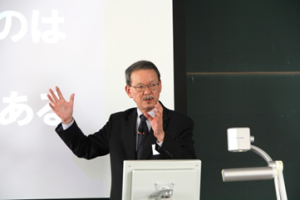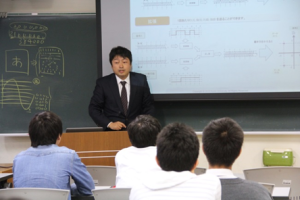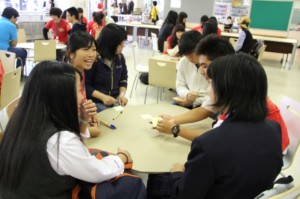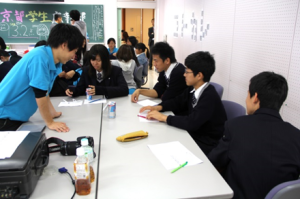Business Overview
Students from Kyoto, who transcend the boundaries of universities, form an executive committee and engage in daily activities with the aim of disseminating “Kyoto as a student city” to society, further revitalizing the Kyoto area, and creating new attractions in collaboration with the business community, the government, the local community, and the university.
After a variety of community exchange activities throughout the year, such as activities to disseminate the original creative odori “Kyoen Sodefure!” and regional cooperation events, a grand festival is held every October as the culmination of these activities.
The University Consortium Kyoto has set the goal of “student growth” in the daily activities of the Student Executive Committee, and supports “student independence” so that students can think and act on their own, and supports the students to make the most of what they have accumulated in the course of their activities for one year since the establishment of the Executive Committee in November every year.
FY2016 Regional Revitalization Project

↑ Click to download the flyer ↑
The Kyoto Student Festival has a strong image of a festival centered on odori held in the Okazaki area every October, but in addition to this, we also carry out various activities on a daily basis, such as regional exchange and international exchange, with the aim of “disseminating the charm of Kyoto” and “revitalizing the region.” However, in order to further realize activities in line with these objectives, it is necessary to have a partner who can work hand in hand, not just the Kyoto Student Festival Executive Committee.
Therefore, we will recruit organizations (partners) that want to “enliven the community together with students” and “want to further convey the appeal of the community with the perspectives and power of students” and promote collaborative projects in a single year. However, the Kyoto Student Festival Executive Committee is also limited in terms of budget, time, and capacity, and it is expected that the number of organizations that will be rejected or adopted may be infinitely small. Despite this situation, we are looking forward to seeing organizations that can feel the significance of the “Student City Kyoto” created through the collaboration of industry, academia, and the public community, and apply to realize their goals.
Outline of Recruitment
|
Application Period |
201510Mon. 26 – Mon. 30 November |
|
Target |
(1) Partners in the Kyoto area (Kyoto City, Kyoto Prefecture) (2) Partners who are trying to revitalize the university by utilizing the power and perspectives of students (3) Partners who consider it important to create projects together with students (4) Partners who have an educational perspective for students |
|
Contents |
This is a co-sponsored project that is completed in a single year on the premise that it will be connected to the main festival in October 2016, which is the culmination of the Kyoto Student Festival. * The following is an example of collaboration. ■ Large-scale events in collaboration with local communities (Example) Pre-event “Challenge to the World in Fushimi” held on August 22, 2015 ■ Development of goods that lead to the events of this festival in collaboration with companies (those that are not for profit) ・Making staff uniforms for the festival from the student’s point of view in collaboration with Kyoto’s kimono industry, etc. ・In cooperation with beverage companies, we will distribute “Student Festival Original Drinks” on the day of the festival. ■ Local events in collaboration with local governments ・Government-sponsored events in the Northern Region ■Research in collaboration with universities to lead to a sense of growth among students ・Research on how students grow before and after the festival (including interim feedback) |

Project Promotion Schedule (tentative)
|
2015 |
Monday, November 30 |
Application Deadline |
|
~Late December |
Document screening (*1) |
|
|
2016 |
~Late January |
Interview with applicants |
|
January~ |
Informal offers of partner organizations and start of meetings with organizations |
|
|
June ~ August |
Project implementation (holding collaborative events, announcing developed products, etc.) (*2) |
-
The feasibility of adoption will be considered, including the feasibility of the festival’s budget, structure, timing, etc. Depending on the situation, it may not be selected from among the applications as a result of deliberation. Deliberations on whether or not to adopt the proposal will be made in consultation with the Selection Committee and the Planning Review Committee, which are made by the Executive Committee.
-
The event is scheduled to be held in June ~ August before the main festival. However, if the project is feasible, it can be held ahead of schedule. (Decision will be made after consultation with the partner partner)

How to apply
1. Download the dedicated form (Excel)
2. Fill out the application form.
3. Attach the application form and send it by e-mail!
[To] saiten14th-ml■consortium.or.jp (Please replace ■ with @)
【Title】Kyoto Student Festival Regional Revitalization Project Application
【Text】Name of the person in charge, affiliation (position), contact information (telephone number and email address)
Please feel free to contact us!
Report on the 13th Kyoto Student Festival
Activities
If you would like to know more about the Kyoto Student Festival, check out this site!
▼Official Website/Official SNS Site▼
Contact us
Kyoto Student Festival Executive Committee
〒600-8216 Shimogyo-ku, Kyoto-shi, Nishitoin-dori, Shiokoji, Shimoru Campus Plaza Kyoto (closed on Mondays)
Tel:075-353-9432 Fax:075-353-9431
E-mail: saiten14th-ml■consortium.or.jp (Please replace ■ with @)
Kyoto Student Festival Official Website: http://www.kyoto-gakuseisaiten.com/

















